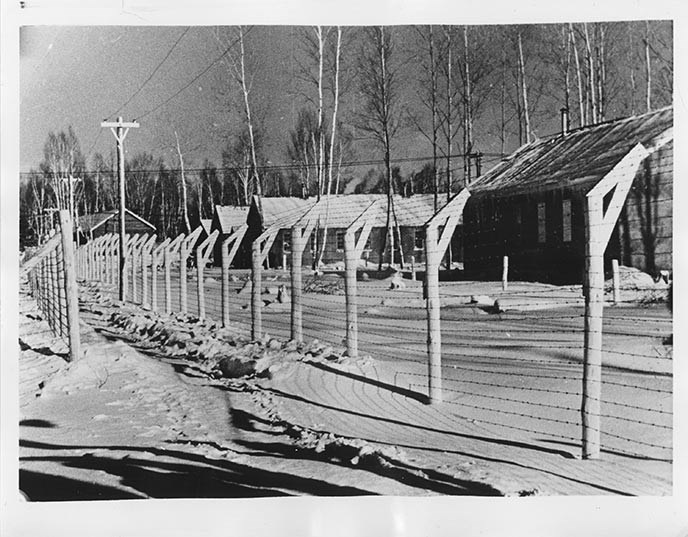The federal government’s May 27 formal apology in the House of Commons to Italian Canadians for their treatment during the Second World War is resonating here in Greater Sudbury, which has a large Italian-Canadian community.
In 1940, after Italy joined the Second World War as an ally to Germany, more than 600 Italians were interned in camps under the authority of the War Measures Act and the Defence of Canada Regulations.
Approximately 31,000 Italian Canadians were declared “enemy aliens,” and had to report to local registrars once per month.
Registrars were appointed by the Minister of Justice, and were provincial or municipal police officers, including Royal Canadian Mounted Police (RCMP) officers, or postal clerks.
“Canadians of Italian heritage have helped shape Canada, and they continue to be an invaluable part of the diversity that makes us strong,” said Prime Minister Justin Trudeau, who, along representatives of other federal parties, issued an apology in the House of Commons last week.
“Today, as we acknowledge and address historical wrongs against the Italian-Canadian community, we also show our respect for their great contributions to our country.”
The apology is “a long time coming,” said Diana Iuele-Colilli, who, until recently, taught in Laurentian University’s Italian Studies program.
(The Italian Studies program has been cut due to Laurentian’s insolvency, and Iuele-Colilli, who was forced to retire from Laurentian, is now known as a professor emeritus. Iuele-Colilli is also honorary vice-consul to Italy in the Sudbury district.)
“The National Congress of Italian Canadians has been lobbying the government for years for this,” she said.
Former Prime Minister Brian Mulroney had apologized to the Italian-Canadian community in 1990 at an informal dinner in Vaughan, but it was never formally done in the House of Commons the way it was last week.
Iuele-Colilli said eight men in Greater Sudbury were initially detained after Canada’s declaration of war on Italy, and four of them spent time at internment camps in places such as Petawawa, for periods of six months to three years.
Examples include Sudbury physician Dr. Luigi Pancaro, who spent three years at the internment camp in Petawawa, where he provided medical care at the camp hospital.
Also interned was Emilio Galardo, the owner of a photography studio in Sudbury called Galardo Studio.
Families of these internees didn’t know where their loved ones were going, or when they were coming back, and were left to struggle financially, often ostracized by the community.
Iuele-Colilli said she knows of one family where the wife was born and raised in Copper Cliff, but because she was married to an Italian national (who was not among the men arrested), the entire family had to get fingerprinted once a month.
“It had massive impacts socially, economically, spiritually,” she said.
“The people who were interned are all ultimately gone, but their kids and their grandkids have lived with the shame of being affiliated with an internee or someone who was deemed an enemy alien. This apology today will go a long way for reparations.”
Also tuning into last week’s apology was journalist and Sudbury native Angela Scappatura, whose grandfather, Francesco Scappatura, was taken from his home in North Bay in 1940 and interned in Petawawa for four months.
Five years ago, Angela produced a documentary about her grandfather’s story for CBC Radio. She said her late father, Frank, was five years old when her father was taken to the internment camp. He would sneak off to the train station every day to see if he had returned.
“He was so desperate for his dad to be home,” Angela said.
She said her grandfather, a successful North Bay business owner, was sent to the camp because of comments his brother had made to a local newspaper owner in support of Italian leader Benito Mussolini.
The family struggled to keep their businesses afloat, and experienced discrimination from the community.
When Francesco finally did return home, he didn’t want to speak about his experiences.
Angela said Trudeau actually referred to her grandfather’s story in the House of Commons apology last week.
She explains that she and her aunt Anita Tosto, who’s in her 90s, participated in a video chat with Trudeau on the subject a few weeks ago.
“It means so much to me,” Angela said. “I feel it so deeply in my heart that my aunt is here, and to be able to hear her name on the floor of the House of Commons, and just hear the trauma that she experienced as a child is acknowledged.”
